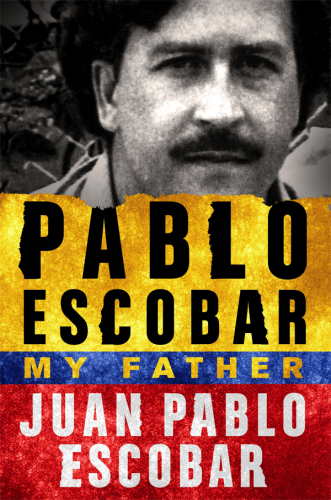
Pablo Escobar--My Father
کتاب های مرتبط
- اطلاعات
- نقد و بررسی
- دیدگاه کاربران
نقد و بررسی

June 27, 2016
In this surprisingly dispassionate account, Escobar examines the meteoric career of Pablo Escobar, a notorious Medellin cartel boss. To the world, the senior Escobar was a supervillain; to the author, he was Dad, and the son attempts to set the record straight about a man who had become myth long before his violent death. As a young criminal, Pablo Escobar stumbled into cocaine trafficking just as the demand for the white powder reached new highs in the U.S. Ruthlessness and business acumen gave him a lion’s share of the growing market. He often said that if he didn’t earn a million pesos by the time he was 30, he’d kill himself; in fact, by 30, he’d earned billions. For drug dealers, however, notoriety is the kiss of death; a bullet finished him on a Medellin rooftop in 1993, but not before he helped drag Colombia into chaos. His son grew up in a world of incredible privilege that included a private zoo on the family estate. Yet he also lived in isolation, his playmates a coterie of bodyguards. While focusing largely on his father, Escobar also includes the grim repercussions the cartel boss’s career had on his family. The matter-of-fact prose serves the material well—when one’s daily life is a surreal blur of excess and danger, there’s no need for embellishment. Escobar, now an architect in Argentina, certainly has an agenda, but he’s not oblivious to the lives cut short by his father’s death dealing. As the closing acknowledgement states: “To my father, who showed me what path not to take.”

July 15, 2016
Biography of drug kingpin Pablo Escobar (1949-1993) by his understandably conflicted son.Escobar, an Argentina-based architect and subject of the documentary Sins of My Father, sees his father's infamy alongside qualities of a devoted family man: "he always had us in his heart, even as he used terror to intimidate his enemies." The author intends not to detail his father's smuggling empire but to document the fuller life of the man--and settle some scores regarding his father's siblings. He says at the outset, "I wish to publicly ask my father's victims...for forgiveness." In his view, neither Escobar's rural youth nor early years as an enterprising small-time criminal prefaced his war against society. By 1975, early forays into cocaine smuggling made him a young millionaire; years of success followed, giving the author a childhood of absurd luxury. However, in 1982, Escobar erred in entering politics. "He mistakenly believed that he could traffic drugs while also holding a seat in Congress," he writes. Over the next two years, his public exposure led to calls for prosecution and extradition, provoking Escobar toward a campaign of bombings, assassinations, and kidnappings. Eventually, he became a fugitive (often accompanied by his family) and expanded his war to the Cali cartel. This part of the narrative becomes jumbled, as Escobar simultaneously negotiates with the government and pursues violent schemes through a dwindling cadre of followers. "I felt powerless in the face of my father's brutal methods," writes the author. "He no longer listened to anyone's advice." Following Escobar's inevitable-seeming demise, the author and his mother had to negotiate for their lives with his enemies. Escobar writes earnestly, relying on descriptive detail, though it can feel artificially reconstructed, particularly regarding the often stagey dialogue. The author is unable to explain how the warm, quirky father he presents and the criminal who normalized widespread violence within drug smuggling are the same person. This results in frequent dissonance. Uneven but will satisfy curiosity regarding the tawdry reality of childhood within a criminal family.
COPYRIGHT(2016) Kirkus Reviews, ALL RIGHTS RESERVED.

























دیدگاه کاربران